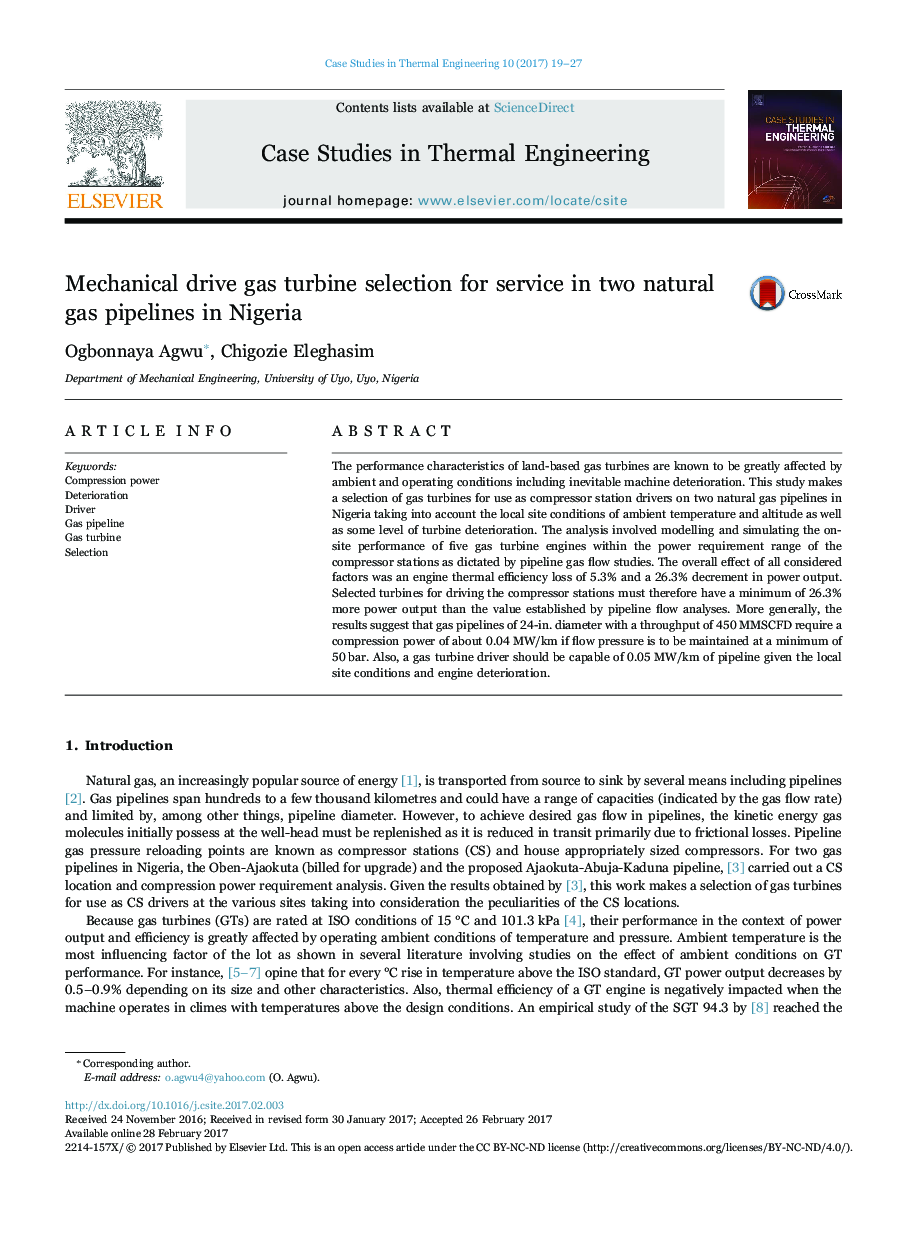| Article ID | Journal | Published Year | Pages | File Type |
|---|---|---|---|---|
| 5011197 | Case Studies in Thermal Engineering | 2017 | 9 Pages |
The performance characteristics of land-based gas turbines are known to be greatly affected by ambient and operating conditions including inevitable machine deterioration. This study makes a selection of gas turbines for use as compressor station drivers on two natural gas pipelines in Nigeria taking into account the local site conditions of ambient temperature and altitude as well as some level of turbine deterioration. The analysis involved modelling and simulating the on-site performance of five gas turbine engines within the power requirement range of the compressor stations as dictated by pipeline gas flow studies. The overall effect of all considered factors was an engine thermal efficiency loss of 5.3% and a 26.3% decrement in power output. Selected turbines for driving the compressor stations must therefore have a minimum of 26.3% more power output than the value established by pipeline flow analyses. More generally, the results suggest that gas pipelines of 24-in. diameter with a throughput of 450 MMSCFD require a compression power of about 0.04Â MW/km if flow pressure is to be maintained at a minimum of 50Â bar. Also, a gas turbine driver should be capable of 0.05Â MW/km of pipeline given the local site conditions and engine deterioration.
